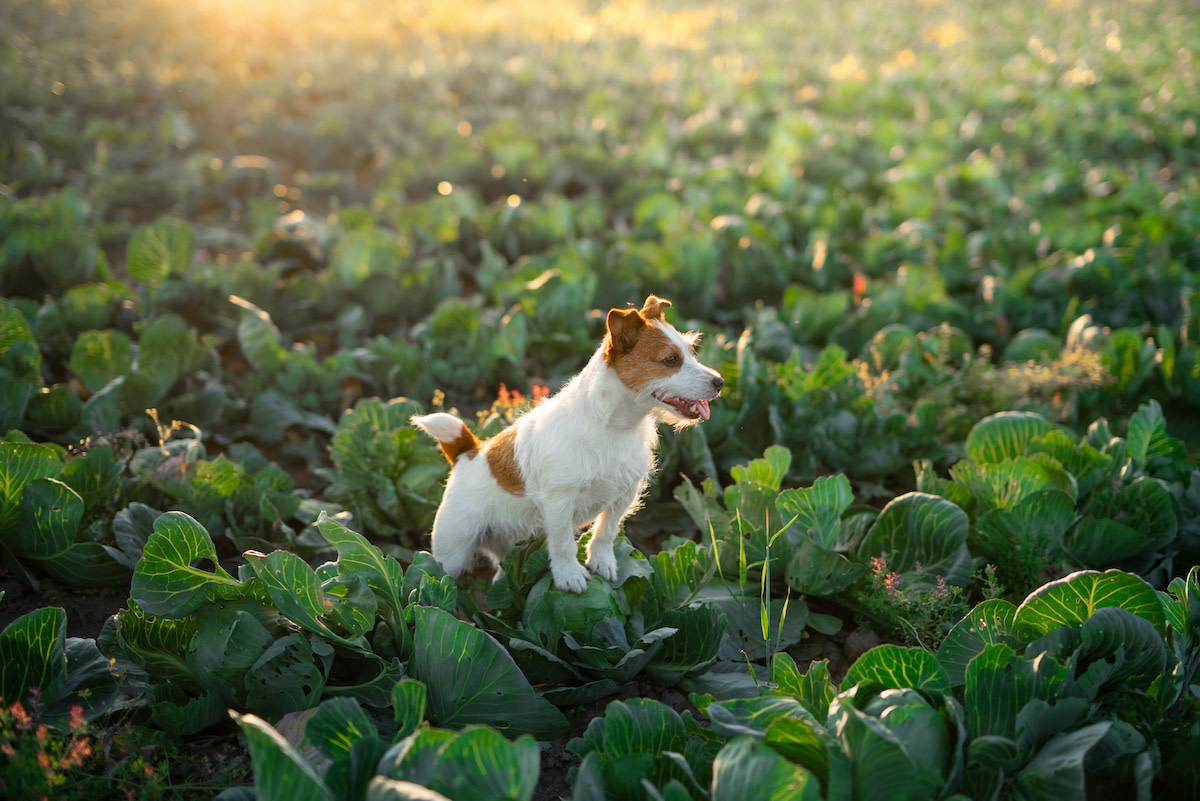Is Cabbage Good for Dogs? Risks and Benefits of Cabbage
Written by MasterClass
Last updated: Mar 23, 2022 • 3 min read
Cabbage can be a relatively low-risk, healthy treat for furry friends without thyroid issues or intolerances to human foods. Read on to consider the connection between cabbage and canine health.
Learn From the Best
Is Cabbage Good for Dogs?
A leafy green or red vegetable, cabbage is a good low-calorie snack for dogs since it contains essential nutrients and vitamins that dogs need for optimal gut health and a strong immune system. On the other hand, cabbage might not be good for dogs with a relevant allergy or a history of intolerance to human foods. Adverse reactions could include stomach upset, constipation, and hypothyroidism.
If you choose to feed cabbage to your dog, it should be raw cabbage or cooked cabbage free of butter and seasonings. Try introducing one to two small cabbage leaves to your dog to see how they react and monitor them closely for any negative symptoms.
3 Types of Nutrients in Cabbage That Can Benefit Dogs
Small, infrequent amounts of cabbage can be good for a dog’s health. Here are three kinds of nutrients in cabbage that have potential health benefits for canines:
- 1. Antioxidants: Cabbage contains several antioxidants that might boost your dog’s immune system, reduce cell degeneration, and diminish the risk of cancer, heart disease, and other severe conditions.
- 2. Fiber: Cabbage has a high fiber content, similar to several other green vegetables, such as avocados, green beans, and brussels sprouts. Dietary fiber can improve your pet’s digestion and boost their overall gut health.
- 3. Vitamins and minerals: Cabbage contains several essential vitamins and minerals, including vitamin C, vitamin K, potassium, and manganese. These vitamins and minerals are important for your dog to maintain good energy levels and strong bones. Occasional, small servings of cabbage can supplement the nutritional value of your pet’s dog food or kibble.
3 Health Risks of Cabbage for Dogs
While small amounts of cabbage can have a positive effect on a dog’s diet, there are a few risks for adverse effects you should consider before feeding your pet cabbage:
- 1. Constipation: Although the dietary fiber in red cabbage can be good for a dog’s digestive system, large amounts can cause constipation. Blockage of organic matter in a canine’s digestive tract can cause significant discomfort and lead your pet to develop severe gastrointestinal problems. To avoid this, feed cabbage to your pet infrequently and in very small quantities—cut cabbage into tiny pieces or rip the leaves into bits.
- 2. Gastrointestinal upset: Excessive cabbage consumption can lead to several gastrointestinal symptoms, including flatulence, watery stools, excessive gas, and stomach upset. These symptoms can negatively impact your pet’s appetite and overall health. It’s a good rule of thumb that when introducing new foods to your dog, you should never allow the fruit or vegetable to exceed ten percent of your pet’s daily calorie intake.
- 3. Hypothyroidism: Cabbage contains small amounts of thiocyanate, a natural compound in many plants and fertilizers. Although your dog regularly filters out harmful thiocyanate levels through their urine, consistent exposure can damage your dog’s thyroid gland, leading to hypothyroidism. Limiting your pet’s cabbage serving sizes and frequency to just a few leaves once or twice a week will help to reduce the chances of damaging their organs.
Before Sharing With Your Pooch
Certain human foods can cause adverse reactions in canines, so always consult your veterinarian to determine whether it is safe to add these foods to your pet’s diet. This article is for educational and informational purposes and is not a substitute for medical or dietary advice.
Want to Learn More About Training the Goodest Boy or Girl?
Your dream of having a dog who understands words like “sit,” “stay,” “down,” and—crucially— “no” is just a MasterClass Annual Membership away. The only things you’ll need to train up a well-behaved pup are your laptop, a big bag of treats, and our exclusive instructional videos from superstar animal trainer Brandon McMillan.
